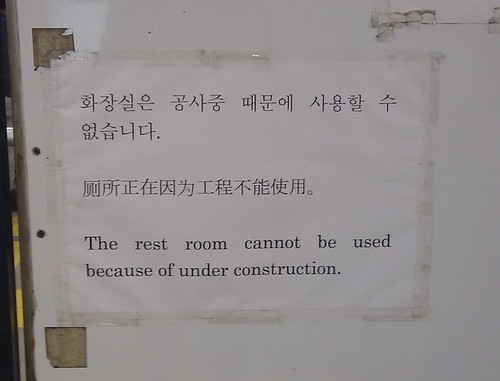This shop really needs help with their English (I'm not sure, but I might need help with my Japanese in today's headline).
× Suit Get! Fair
◯ "Get a Suit" Sale!
First, for fairness, let me compliment them on their use of "
suit" and not "
suits". Good job! The explanation of "
suits" can be found at this old post, which happens to be about the same shop:
http://upgradeenglish.blogspot.com/2010/07/blog-post.html
Remember English word order. In almost every case, the subject comes before the verb. That means their suit is getting something, but suits don't usually get anything, except:
First, my suit got stained.
Then my suit got torn.
After that, it got repaired by a tailor.
When it was too old, it got thrown away.
Their next mistake is using "
get" with an
exclamation point in the middle of the phrase. I talked about this punctuation mistake, which is so common in Japan, in this old post:
Finally, Japanese retailers love to talk about "
fairs" and "
festas", but really, if you are selling stuff, what's wrong with
sticking with "
sale"? If I am looking for a
good deal, I don't go to a "
fair" -- I go to a
sale.
- fair カーニバル (definition from Eijiro on the Web)... I know there are other definitions, but I promise you that the feeling is like The World's Fair: http://ja.wikipedia.org/wiki/国際博覧会
- 祝祭 [しゅくさい] (n) festivals feasts <- do you say this in Japanese? A festival, like a fair, sounds like a really big gathering in a town, not an event at a shop.
- stick with 【句動】~にくっついて離れない、~とずっと一緒{いっしょ}にいる、~のそばを離れない、~を手放{てばな}さない、~を堅持{けんじ}する、~を続ける、~にあくまでも忠実{ちゅうじつ}である、~にこだわる、~の一点張りで通す (defintion from Eijiro on the Web)
- a good deal 安い買い物 (defintion from Eijiro on the Web)
With luck, their sale will work anyway, and they will make enough money to be able to hire someone to help them with their English in the future.





